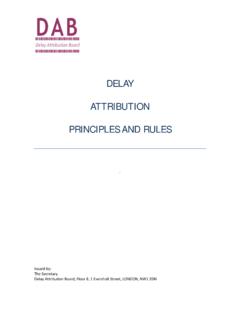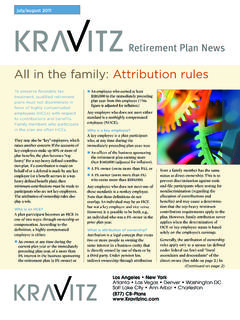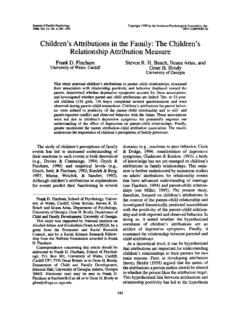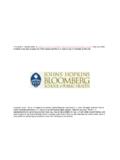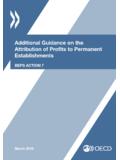Transcription of FBAR: “Family Ownership” Attribution Rules (IRC §318)
1 fbar : family ownership Attribution Rules (IRC 318) IRC 318 constructive ownership of stock Rules attribute ownership to family members who maintain common ownership in an entity ( , trust). If 2 or more family members are Trust beneficiaries (or any one act as Trustee), the issue is whether IRC 318 family Attribution Rules ( , greater than 50% ownership interests) require any Trust beneficiary to file a fbar to disclose foreign bank accounts owned by the Trust. Under IRS 318(a)(1)(A)(i)(ii), an individual shall be considered as owning the stock owned, directly (or indirectly), by or for: 1. His spouse. 2. His children, grandchildren and parents. The IRS has advised: 1. A US Taxpayer, who is a Trustee, is required to file a fbar for the Trust if the US Trustee has either: a. A financial interest, or b. Signature authority over a foreign account.
2 On 8/21/09 the IRS confirmed to my law offices: A beneficiary of more than 50% of trust assets must file the fbar on account of the trust. As the IRS clarified (8/21/09) Taxpayer family Trusts may hold Foreign Bank (and Financial) accounts, and unless one of the Trust beneficiaries has a more than a 50% interest in income or principal, none of the Trust beneficiaries are required to file a fbar (to disclose the foreign bank [financial] account). On 8/21/09, the IRS confirmed: 1. If the trust has a discretionary class of two or more beneficiaries, and none of the beneficiaries has a more than a 50% interest in income or principal, none of the beneficiaries need to file a fbar to report foreign bank accounts. 2. The ownership Attribution Rules of Title 26 (IRC 318) are not applicable to a fbar (filing) (which includes a discretionary class of beneficiaries [ , family trusts]).
3 Gary S. Wolfe A PROFESSIONAL LAW CORPORATION 9100 Wilshire Blvd., Suite 505 East Beverly Hills, CA, 90212 (310) 274-3116 email.
